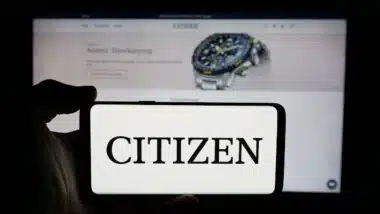 A lawyer for medical negligence may be able to assist families of individuals who died as a result of EMT intubation.
A lawyer for medical negligence may be able to assist families of individuals who died as a result of EMT intubation.
Intubation is the process of opening a person’s airway so they can get oxygen to the lungs. This may be a part of emergency care, meaning that emergency medical technicians (EMTs) may perform intubation on critically ill patients. Some states prohibit EMTs from intubating a patient and instead reserve this for paramedics. Other states, however, do allow EMTs to perform the procedure.
Unfortunately, intubation can lead to death if not done properly, which means directing a plastic tube through the throat and into the trachea. If an EMT misses the trachea and instead directs the tube through the esophagus, air is instead pumped into the stomach.
When air is directed into the stomach instead of the lungs, it can result in suffocation and death. Without oxygen, there’s a risk of brain damage. And even if an airway is eventually restored, the damage to the brain can be permanent.
Should someone die from intubation complications, such as esophageal intubation, it may be due to medical negligence. Intubation into the esophagus should never happen and is considered unacceptable under any circumstances.
Unfortunately, these incidents may be more common than expected. In Rhode Island, an ER doctor found that during a 2 1/2-year period, 11 patients died as a result of a misplaced intubation tube. According to WNPR, Rhode Island is one of a handful of states that allows people who are not a paramedics to intubate a patient.
Although the doctor subsequently campaigned for stricter intubation requirements and proper education, the practice may still be occurring under the radar in emergency departments.
If an EMT or other untrained professional performs an intubation and fails to properly restore an airway, they may be liable for the patient’s subsequent death.
EMT Negligence & How To Claim
Although medical negligence can result in fatal and heartbreaking consequences, grieving family members may be able to hold negligent medical professionals, such as EMTs, accountable. An experienced medical negligence lawyer can help families navigate this process.
In order for an EMT to be liable for medical negligence, a plaintiff has to prove four things:
- The person had a duty to act
- The person breached that duty
- An injury occurred
- The injury was caused by the breach of duty
In the case of EMT intubation complications, the above criteria may apply. For example, the EMT has a duty to provide medical care. A breach of duty may include a failure to properly intubate a patient or performing an intubation despite not being qualified. Death due to suffocation would be considered an injury which would have occurred due to an improper intubation.
If your loved one was injured or killed as a result of an EMT intubation, you may be eligible to speak with a lawyer for medical negligence. Although there is no guarantee that your claim can proceed to a formal negligence lawsuit, an experienced attorney can review your case and your eligibility for compensation.
Join a Free EMT Intubation Death Lawsuit Investigation
If you are concerned that your loved one may have died due to an EMT intubation error, fill out the form on this page.
Experienced attorneys will review your information to determine whether you qualify to participate in a free EMT intubation death lawsuit investigation.
This article is not legal advice. It is presented
for informational purposes only.
ATTORNEY ADVERTISING
Top Class Actions is a Proud Member of the American Bar Association
LEGAL INFORMATION IS NOT LEGAL ADVICE
Top Class Actions Legal Statement
©2008 – 2025 Top Class Actions® LLC
Various Trademarks held by their respective owners
This website is not intended for viewing or usage by European Union citizens.
Get Help – It’s Free
Join a Free EMT Intubation Death Lawsuit Investigation
If you qualify, an attorney will contact you to discuss the details of your potential case at no charge to you.
PLEASE NOTE: If you want to participate in this investigation, it is imperative that you reply to the law firm if they call or email you. Failing to do so may result in you not getting signed up as a client or getting you dropped as a client.
E-mail any problems with this form to:
[email protected].
Oops! We could not locate your form.












